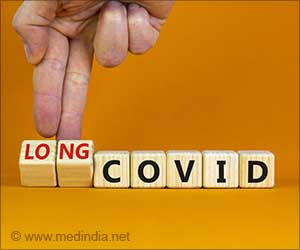Dr. Anthony Fauci sheds light on the complexities of long COVID and postviral syndromes, emphasizing the need for extended research and understanding.
- Dr. Fauci delves into the multifaceted nature of long COVID, emphasizing its distinctiveness from ME/CFS despite shared symptoms
- Fauci reflects on past challenges in identifying postviral illnesses, revealing the historical backdrop of research on chronic fatigue and related conditions
- The interview highlights the crucial need for extensive, long-term research funding to comprehensively understand the impact of long COVID-19 and postviral
Chronic Fatigue Syndrome and Myalgic Encephalomyelitis
In a conversation spanning decades, Fauci revealed that postviral illnesses, including what we now term chronic fatigue syndrome and myalgic encephalomyelitis/chronic fatigue syndrome (ME/CFS), have been on the medical radar for nearly 50 years. Early research on these conditions faced challenges in diagnostics, leaving many individuals grappling with disabilities without clear causes.Fauci's early encounters with patients exhibiting symptoms now associated with ME/CFS occurred during his tenure at the National Institutes of Health in 1968. However, the emergence of the global HIV/AIDS crisis shifted the focus of infectious disease experts, diverting attention from chronic, debilitating conditions to the urgent battle against a life-threatening pandemic.
Long COVID vs. Chronic Fatigue Syndrome
Addressing the lingering question of whether long COVID and ME/CFS are identical, Fauci highlighted a crucial distinction. While both may share symptoms, the presence of a specific virus and knowledge of when the infection occurred differentiate long COVID. Fauci stressed the historical limitations in pinpointing the infectious agent causing ME/CFS, underlining the importance of specific viral identification (1✔ ✔Trusted SourceRecursive Debility: Symptoms, Patient Activism, and the Incomplete Medicalization of ME/CFS
Go to source).
Recent COVID cohort studies show a higher prevalence of long COVID-19 in women, a trend echoed in other chronic illnesses such as chronic Lyme disease, multiple sclerosis, and autoimmune disorders (2✔ ✔Trusted Source
A Longitudinal Study of COVID-19 Sequelae and Immunity: Baseline Findings
Go to source). Fauci suggested that women might be more susceptible to the dysregulation of immune responses triggering long COVID, pointing towards the need for gender-specific research.
Vagal Nerves and Immune Response
Considering long COVID's description as a neurological disease, Fauci speculated on the involvement of vagal nerves. Neuroscientist Mike VanElzakker proposed that SARS-CoV-2 might manipulate immune responses through the vagal nerves, leading to delayed calming actions. This hypothesis could explain reported symptoms such as panic, heart palpitations, and persistent anxiety.Fauci underscored the critical need for extensive research on postviral syndromes, emphasizing the varied impacts of long COVID-19 on individuals. He stressed the significance of long-range, multiple-year funding to support open-ended investigations, a departure from current funding structures that often demand immediate results for renewal.
In a candid and insightful interview, Dr. Anthony Fauci provided a scientific perspective on the reality of long COVID. His words, untethered from political interpretations, lay to rest any skepticism regarding the existence of long COVID. The journey into the postviral unknown continues, urging a concerted effort towards understanding, diagnosing, and eventually finding cures for these persistent and often misunderstood conditions.
References:
- Recursive Debility: Symptoms, Patient Activism, and the Incomplete Medicalization of ME/CFS - (https:doi.org/10.1111/maq.12701)
- A Longitudinal Study of COVID-19 Sequelae and Immunity: Baseline Findings - (https://pubmed.ncbi.nlm.nih.gov/35605238/)
Source-Medindia
















